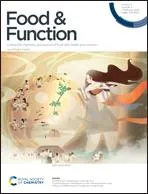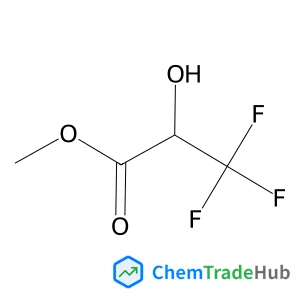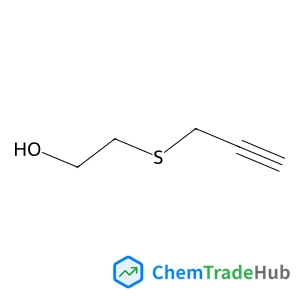Egg white protein hydrolysate decreased blood pressure via the competing endogenous RNA regulatory networks in female spontaneously hypertensive rats
文献信息
Despite numerous studies having reported the effects and mechanisms of antihypertensive peptides including peptides derived from egg white proteins, the role of peptides in a female hypertensive animal model is unknown. On the other hand, the role of epigenetic modulation by peptide treatment has rarely been investigated. This study sought to investigate the effect of egg white protein hydrolysate (EWH) in female spontaneously hypertensive rats (SHRs) as well as to explore the underlying mechanisms from the perspectives of the transcriptome and the profiles of non-coding RNAs. Young (12–14-week-old) female SHRs were orally administered 250 mg per kg body weight (low-dose) or 1000 mg per kg body weight (high-dose) EWH daily for 10 weeks. The blood pressure of the rats was monitored weekly. The mRNA and non-coding RNAs (miRNA, lncRNA, and circRNA) in the aorta were profiled by the high-throughput RNA-seq technique. Differentially expressed (DE) RNAs in the aorta were identified for the construction of the competing endogenous RNA (ceRNA) networks and key molecules were validated by qRT-PCR. The treatment of the high-dose EWH showed a significant effect on reducing blood pressure in female SHRs. Bioinformatic analyses revealed 813, 90, 347 and 869 DE-mRNAs, DE-miRNAs, DE-lncRNAs and DE-circRNAs, respectively. The CNTN5-LncRNA-XR_001835895.1-miR-384-5p was identified as the central network which was validated in the aorta and circulation of female SHRs. The results from this study demonstrated that the treatment with EWH reduced blood pressure via regulating the ceRNA networks in female SHRs, which provided novel insights into the mechanisms of food protein-derived antihypertensive peptides.
相关文献
IF 6.367
From zinco(ii) arsaketenes to silylene-stabilised zinco arsinidene complexesIF 6.222
Near infrared light activation of an injectable whole-cell cancer vaccine for cancer immunoprophylaxis and immunotherapyIF 6.843
Interfacial engineering of a polymer–MOF composite by in situ vitrificationIF 6.222
The dilemma between acid and base catalysis in the synthesis of benzimidazole from o-phenylenediamine and carbon dioxide‡IF 6.222
Electrospun hydrogels for dynamic culture systems: advantages, progress, and opportunitiesIF 6.843
Heterogeneous toroidal spiral particles for islet encapsulationIF 6.843
Back coverIF 6.222
A hollow neuronal carbon skeleton with ultrahigh pyridinic N content as a self-supporting potassium-ion battery anodeIF 6.367
Carbon-based photocatalysts for enhanced photocatalytic reduction of CO2 to solar fuelsIF 6.367
来源期刊
Food & Function

Food & Function provides a unique venue for physicists, chemists, biochemists, nutritionists and other food scientists to publish novel, cutting-edge, original research focussing on food, its nutrients and their relation to human health and nutrition. We welcome research describing the: Physical properties and structure of food and how this relates to sensory perception and human health Biochemical and physiological actions of food components Interactions between foods, gut microbiota and human physiology Nutritional and biological evaluation of food Clinical and population studies using food or food components Development of biomarkers of food intake and effects on human health We also welcome systematic reviews and meta-analyses of existing studies in the literature, provided these are objective and scientifically valid Food in this context is defined as materials of plant, animal or mineral origin, which are consumed orally (by humans) for pleasure and to sustain growth and vital processes. Examples of research topics that are of interest to be published in Food & Function are: Chemistry and physics of food components and digestion processes Relationship between the physical properties/structure of food and nutrition and human health - for example, impact of food matrix or processing on nutrient release and uptake Molecular properties and physiological effects of food components (nutrients, fibres, essential micronutrients, phytochemicals, bioactives, food substitutes, novel ingredients, allergens, flavours and fragrances) Nutritional and health effects of food including bioavailability and metabolism assessment of food components (nutrients, micronutrients and other microconstituents) Efficacy and mechanisms of food constituents in the body - including biomarkers of intakes, exposure and effects Impacts of foods/food components on gut microorganisms and human physiology - For example impact of fermented foods Role of nutrition and diet in human disease prevention and development Cellular and molecular effects/mechanisms of food/food components image block The following types of research are not within the scope of Food & Function: Research relating to traditional herbal medicines, medicinal plants or active compounds extracted from such plants (materials that are primarily consumed as medicine, i.e. the intended purpose is primarily to treat, cure or prevent a non-deficiency disease) or relating to foods not recognised as human diet contributors Animal nutrition research that is not primarily designed as a model to benefit human nutrition (for example, studies of growth/accretion, heat stress, weaning, ruminant digestion, meat quality, etc.) Treatments administered by non-oral routes such as injection (subcutaneous, intramuscular, intraperitoneal, etc.), dermal/transdermal, rectal, inhalation, nasal, etc. Exceptions are when such routes of administration are used for mechanistic/control purposes in the experimental design Pharmacological/pharmaceutical approaches: Encapsulation, emulsification and/or pure controlled release of compounds or bioactives that do not come directly from edible foods, such as dietary supplements - these are better suited to a pharmaceutical journal In vitro or in vivo studies with poorly defined (insufficiently characterised) extracts and studies without appropriate controls will not be considered Cells studies not considering the metabolism of food components ingested – for example, irrelevant exposure of cells to compounds not present in the body after absorption Manuscripts with only a fully theoretical/bioinformatic approach and without appropriate support from analytical evidence will not be considered for publication Studies focussing solely on food engineering, preservation and sustainable technologies – these can be published in our companion journal Sustainable Food Technology Pure food analysis - these can be published in Analytical Methods
推荐供应商
 成都同创源医药科技有限公司
成都同创源医药科技有限公司 陕西缔都医药化工有限公司
陕西缔都医药化工有限公司 芜湖市汤普森生物科技有限公司
芜湖市汤普森生物科技有限公司 新乡瑞诚科技股份有限公司
新乡瑞诚科技股份有限公司 西安汇林生物科技有限公司
西安汇林生物科技有限公司 南京奥德赛化工有限公司
南京奥德赛化工有限公司 E.Georg Lüdecke Armaturen GmbH
E.Georg Lüdecke Armaturen GmbH 枣庄瀚邦化工有限公司
枣庄瀚邦化工有限公司 三原金瑞生物工程有限公司
三原金瑞生物工程有限公司














